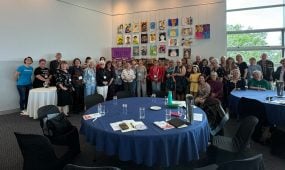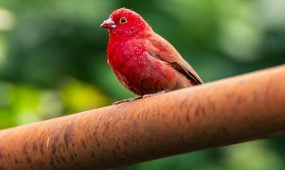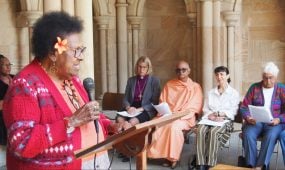2023 Diocesan Synod reflections: further highlights and learnings
Reflections
Three Synod reps share their Synod highlights and learnings with anglican focus readers, including Alexandra Amankwah from The Parish of Stafford, Tom Finn from the Cathedral and Francisco Estevao from The Parish of Robina
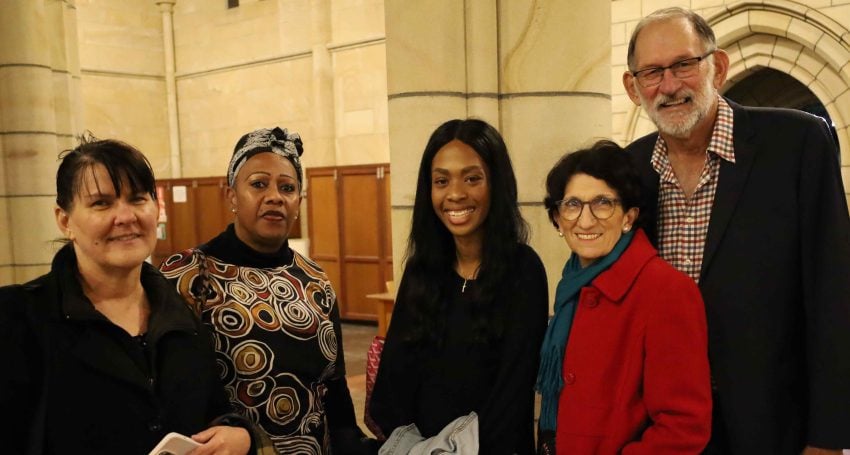
Alexandra Amankwah — Synod Rep, The Parish of Stafford
The highlight of Synod for me was attending the service in the Cathedral on the Friday night and listening to The Ven. Lizzie Gaitskell preach. She posed the question to us “When is the wilderness not The Wilderness?” She spoke of the sheer volume of noise — wealth, power, property, visibility, success and time — that plagues us daily and how invaluable it is to be able to tune into the voice of God within all the noise. She spoke of the story of John the Baptist and how he, amongst all the chaos of his time, was able to speak up and speak out about the injustices of society and teach about God’s all-embracing love.
Advertisement
Archdeacon Lizzie’s sermon really forced me to think deeply about what is important to me and what truly matters. She said, and I quote, “we live a disposable society, an empire-building culture; where drama, celebrity and inauthenticity make headlines”. This really struck a chord within me because I was raised in an era of social media and digital technological, and so I have sometimes been caught up in trends and materialistic ideas about what is important. We’ve grown up seeing all the things our friends buy and do. Sometimes I feel as though we are fooled into thinking that if we have what others have then we, too, will be content.
Archdeacon Lizzie’s sermon reminds me that this stuff isn’t important and it’s being able to form meaningful relationships, grounded in love, that really matters. It’s being able to speak for the voiceless and stand by the oppressed that really matters in this lifetime.
I think this will aid me in my ministry back at St Clement’s because it will encourage me to give of myself more and form deeper connections with my fellow parishioners. As well as this, I think it will allow me to be more mindful about what I put my time and attention towards. Her sermon reminds me that there is still a place for the Church in this world, and that actually more than ever, the world needs God.
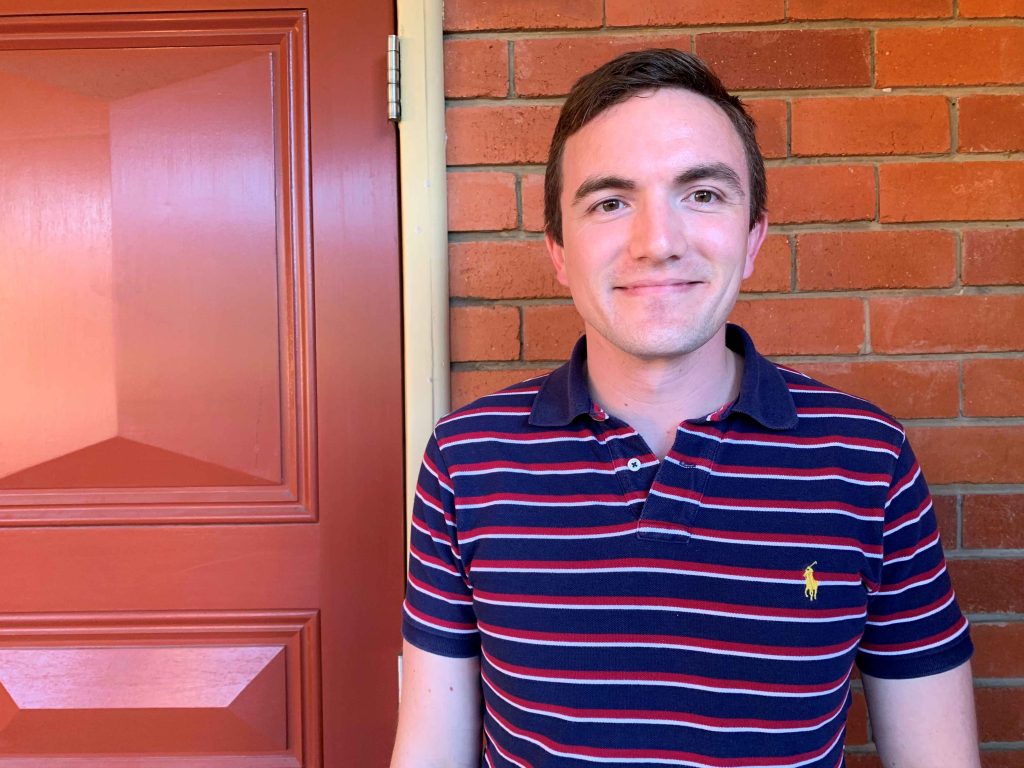
“Working together to keep the Church going is important because the Church connects us to the divine,” (St John’s Cathedral Synod representative Tom Finn at Synod in 2023)
Tom Finn — Synod Representative, St John’s Cathedral
One of the highlights of this year’s Synod for me followed the passing of a motion* that lamented the Anglican Church in Uganda’s active support for the passing of the Homosexuality Act, which legislates for penalties that include life imprisonment and death.
After Synod closed a priest commented positively to me about the lack of opposition to the motion, noting that more opposition would have come from the floor in the past. I left Synod with a great feeling of hope. Before attending this Synod I was wondering whether I should run again for re-election to volunteer as one of my parish’s Synod representatives because I was unsure whether I could make a difference.
Advertisement
I am hopeful that in the future our Diocesan Synod will fully include Anglicans in all the sacraments, including marriage for all. I can see that there will be big challenges for the ACSQ, especially in regard to parishioner numbers and their median age.
Working together to keep the Church going is important because the Church connects us to the divine. As a catholic — in the “universal” sense — church we are the Church for everyone regardless of gender, sexuality, cultural background or ethnicity, and so on.
The Church is also important for pastoral care. Priests, lay leaders and bishops take pastoral care seriously, and I can trust they will be there for me during my journey.
We are also important, as a Church, where ever advocacy is needed for vulnerable people, including for people who sleep rough, First Nations peoples impacted by the health and life expectancy gap and refugees.
The Church is serving in all the right spaces.
*Uganda
The Very Rev’d Dr Peter Catt to move; The Rev’d Deborah Bird, seconding:
That this Synod;
1. Noting that:
a) The Anglican Church in Uganda actively supported the passing of the Homosexuality Act which legislates for penalties that include life imprisonment and death;
b) The Archbishop of Canterbury, in a statement issued on 9th June 2023:
i. reaffirmed the Anglican Communion’s Commitment to honouring the dignity of every human;
ii. stated that the criminalisation of homosexuality is not consistent with honouring that dignity;
iii. called on the Anglican Church in Uganda ‘to reconsider their support for [the] legislation and reject the criminalisation of LGBTQ people’;
iv. called on ‘the leadership of GAFCON and Global South Fellowship of Anglican Churches (GSFA), to make explicitly and publicly clear that the criminalisation of LGBTQ people is something that no Anglican province can support’;
c) In 2022 The General Synod of the Anglican Church of Australia issued an apology to LGBTIQA+ people for past treatment of them; and
Related Story
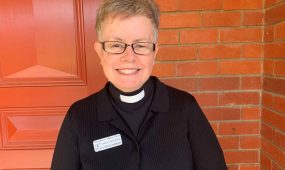 Reflections
Reflections
Synod reflection: motion about active peacemaking
d) This Synod, at its session in 2022, initiated a process to prepare its own apology to LGBTIQA+ people,
2. Affirms and echoes The Archbishop of Canterbury’s Statement of 9th June 2023 and the calls to the church in Uganda, GAFCON and GSFA it contains.
3. Calls on the Primate of The Anglican Church of Australia, The Bishops of the Anglican Church of Australia, and Diocesan Synods to publicly affirm their support for the Archbishop of Canterbury and to publicly affirm and echo his statement of 9th June 2023.
4. Requests the Bishop Administrator to convey the text of this motion to the Primate of The Anglican Church of Australia, The Bishops of the Anglican Church of Australia, and Diocesan Registrars.
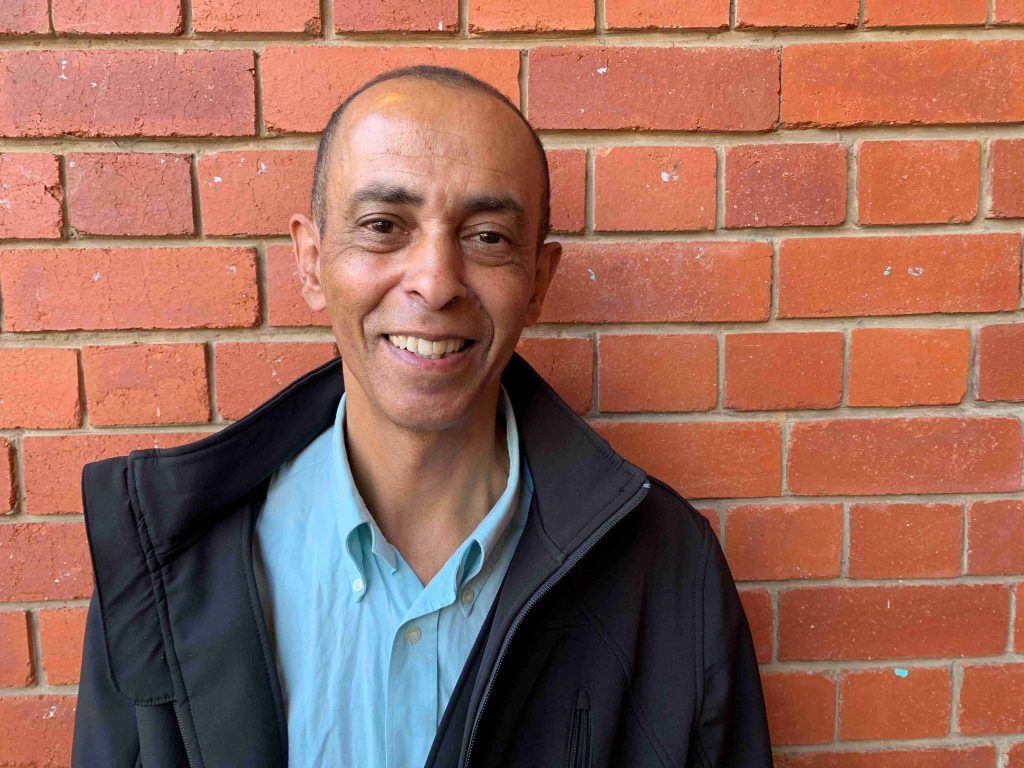
“I publicly supported the motion from the Synod floor, noting how impressed I was with previous Synod speakers who also advocated,” (Parish of Robina Synod Representative Francisco Estevao at 2023 Synod)
Francisco Estevao — Synod Representative, The Parish of Robina
The highlight for me was the decision about the Uganda motion.
This matter is close to my heart for a number of reasons, including the fact that a person close to me was bashed to death for being gay.
I was heartened by how the Uganda motion was so well supported. I publicly supported the motion from the Synod floor, noting how impressed I was with previous Synod speakers who also advocated. It was important for me to speak because I was born and raised in Africa (I am of Zulu descent) and it’s important to have diverse African voices speaking to this matter.
The carrying of the Uganda motion was my highlight because I saw very articulate and caring people showing love for marginalised people (both here and in Africa) as they spoke up against cruel legislation using common sense, facts and compassion. I believe they did what Jesus of Nazareth would have done in the same circumstances.


